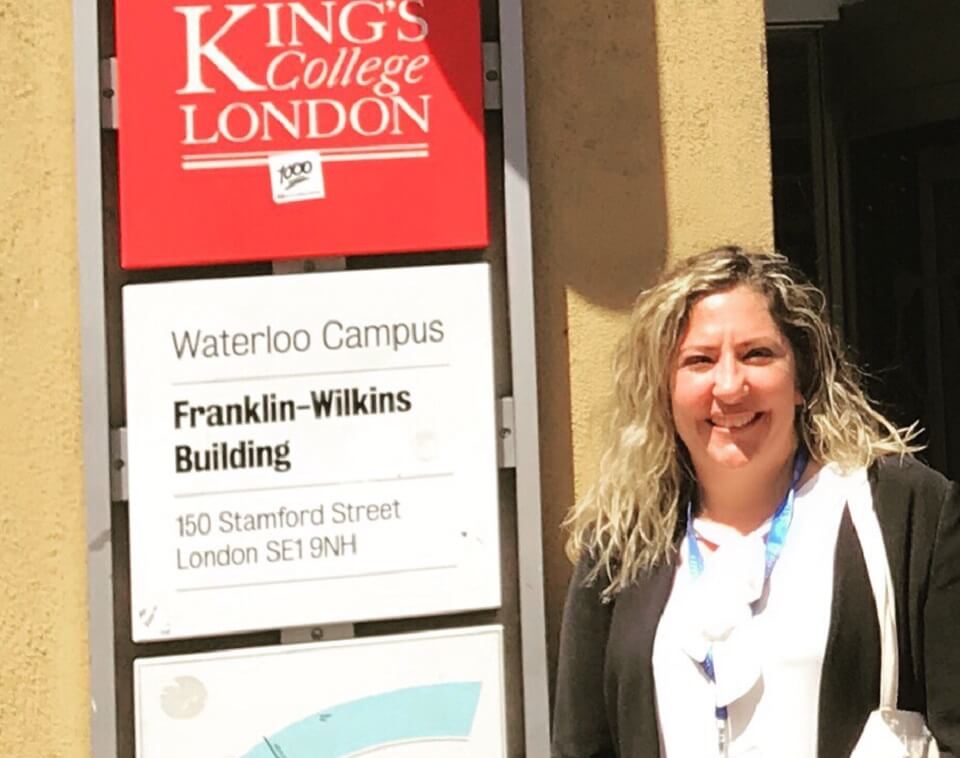
Assoc. Prof. Dr. Köprülü: “In the Arab world of today, it is no longer possible to evaluate political and social movements as a unified structure”
Head of Department of Political Sciences of Faculty of Economics and Administrative Sciences of Near East University Assoc. Prof. Dr. Nur Köprülü has represented the Near East University at BRISMES (British Society for Middle Eastern Studies) Conference; at one of the most rooted establishments in the United Kingdom, King’s College. She presented a paper giving examples from Tunisia and Jordon.
According to the press release issued by the Directorate of Press and Public Relations of Near East University, the main theme of this year’s conference was ‘New Approaches to Studying the Middle East’ and Assoc. Prof. Dr. Nur Köprülü attended the BRISMES Conference 2018 with her study on Re-considering the hypothesis of Inclusion subsequent to the Arab Riots: Islamic movements in Jordan and Tunisia.
Through her work, Assoc. Prof. Dr. Köprülü pointed out that since the Arab Riots which started in 2011 and the Islamic movements are inseparable parts of permeable borders and complex structure of the geography of the middle east and northern Africa. She added that due to increasing islamic activism and islamic movement in the region, and Society of the Muslim brothers, the individuals there could not be perceived in unity.

Political transition processes of Islamic groups subsequent to the Arab Spring…
Assoc. Prof. Dr. Köprülü stated that even though Islamic political parties began to gain strength during elections held after the Arab uprisings, and after the overthrow of the Ikhwan in Egypt in 2013, there tendency which was to the advantage of Islamic movements until that day has actually took a turn and now the tendencies are for the disadvantage of them. She added that the processes of communal movements involved after the Arab Spring embraced a wholistic approach was taken to analyse the political demands and expectations of Islamic groups; alongside the significance of consideration of the differences between countries. Furthermore, Assoc. Prof. Dr. Köprülü expressed that one of the most important issues encountered subsequent to the riots was whether the authoritative structures should be replaced by political pluralism or not.
Assoc. Prof. Dr. Köprülü “On the one hand, while we can see Tunisia as an example country where significant steps are taken to be democratic and embrace political pluralism, the same developments cannot be observed in Egypt, Syria and Jordan. Therefore, the political practices conducted by Muslim brotherhood (Ikhwan) in Egypt and Tunisia is much different from each other.” She further pointed out that the practise in Jordan are sort of a reflection of what is being carried out in Egypt and Tunisia; almost a ‘hybrid’ structure. The different policies and approaches in Muslim brotherhood (Ikhwan) has brought the need to re-consider the hypothesis of inclusion
It was stated that Assoc. Prof. Dr. Nur Köprülü presented her fieldwork on two political parties, Ennahda in Tunisia and IHC in Jordan, and answered the questions directed at her after the panel.